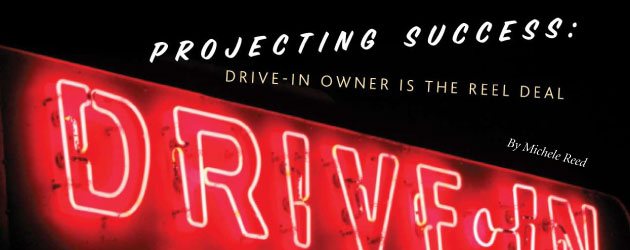Ed. Note: In January, at a session titled “In Search of TV’s Next Big Thing” at the Las Vegas Consumer Electronics Show, Peter Bocko ’75 and four other industry executives debated trends in hardware, software and the sociology of future TV. Here, Pete shares some highlights of their discussion.
Are there big differences between brands of flat panel display?
I prefer the efficiency and look of LCD over plasma displays especially in normal room lighting. Among LCDs, there is little on-screen difference between TV brands when watching conventional HDTV. Specs, although improving continually, are past the point of diminishing returns. A 1,000,000-to-1 dynamic contrast ratio may be important to video engineers skulking in a dark room filled with $200,000 worth of measurement equipment but not to the normal consumer.
Today, one should buy a 120- or 240-hertz LED backlit LCD (LED makes a big difference in color reproduction and motion rendering). Focus on your personal preferences for the “look” of the TV picture, ease of use of the remote and overall set style. Many showrooms have their LCDs set to “showroom mode” in which the picture is amped up. Ask the salesperson to set it back to “normal viewing” to see what it will look like in your living room. If the salesperson doesn’t know what you are talking about, buy your TV elsewhere.
In terms of style trends, check out the new slim “borderless” designs in which an additional piece of glass protects the screen and creates a futuristic look. I think we have come a long way from the days where the TV set is a living room eyesore.
What is the status of 3-D TV?
Although strides have been made, 3-D technology is still in its infancy and many may find themselves disappointed by the lack of quality content. Bad 3-D is worse than no 3-D: Poorly rendered 3-D sometimes makes people (including me) queasy. Gamers get value out of 3-D TV now; a compelling 3-D experience requires both advanced 3-D TV technologies and improved 3-D video production.
What is Internet TV?
This is the most compelling trend in TV today. Some new flat screen TVs allow transparent access to online content and social networking. A modern Internet-enabled TV is potentially never obsolete, because its onboard software can be updated with new capabilities. The cable box will become a thing of the past as content will be highly personalized and increasingly from “the cloud”. Viewers will be accessing “their TV” anywhere — not just their living room — using a variety of portable devices that fit with their lifestyle.
But Internet TV also creates the potential for your TV to be watching you. Imagine your TV processing and collecting information from your Web browsing and viewing history to customize what commercials are directed to you when watching “free” content. Won’t that be just a little creepy?
What comes next? Will the Web beam TV directly to your brain?
I was asked a number of years ago whether “retinal injection” of images might obsolete the need for big screen TV. I thought then and still believe, new technologies notwithstanding, TV is still fundamentally a social activity. New gadgets and content are important but secondary to the fact that we mostly watch video with friends and family. It is not what we watch so much as with whom we watch that makes the experience enjoyable. All my HDTV big screens and surround sound still cannot improve upon watching Planet of the Apes on an 11-inch B&W Emerson TV in my Riggs Hall dorm room late one Friday night in 1973 with my roommate Lynn Stone ’75.
— Peter Bocko ’75
You might also like
More from Spring 2011
Oswego achieves national distinction for service
SUNY Oswego, named each time to the U.S. President’s Higher Education Community Service Honor Roll since the list’s inception in …
‘Gorilla’ Marketing: Bocko helps change the way we view the world
If you are one of the 100 million Americans with smart phones, chances are you are holding the work of …
Projecting Success: Drive-In Owner is the Reel Deal
Some people work a second job and call it moonlighting. John Nagelschmidt ’66 means it literally. Since 1961 — summers as …












